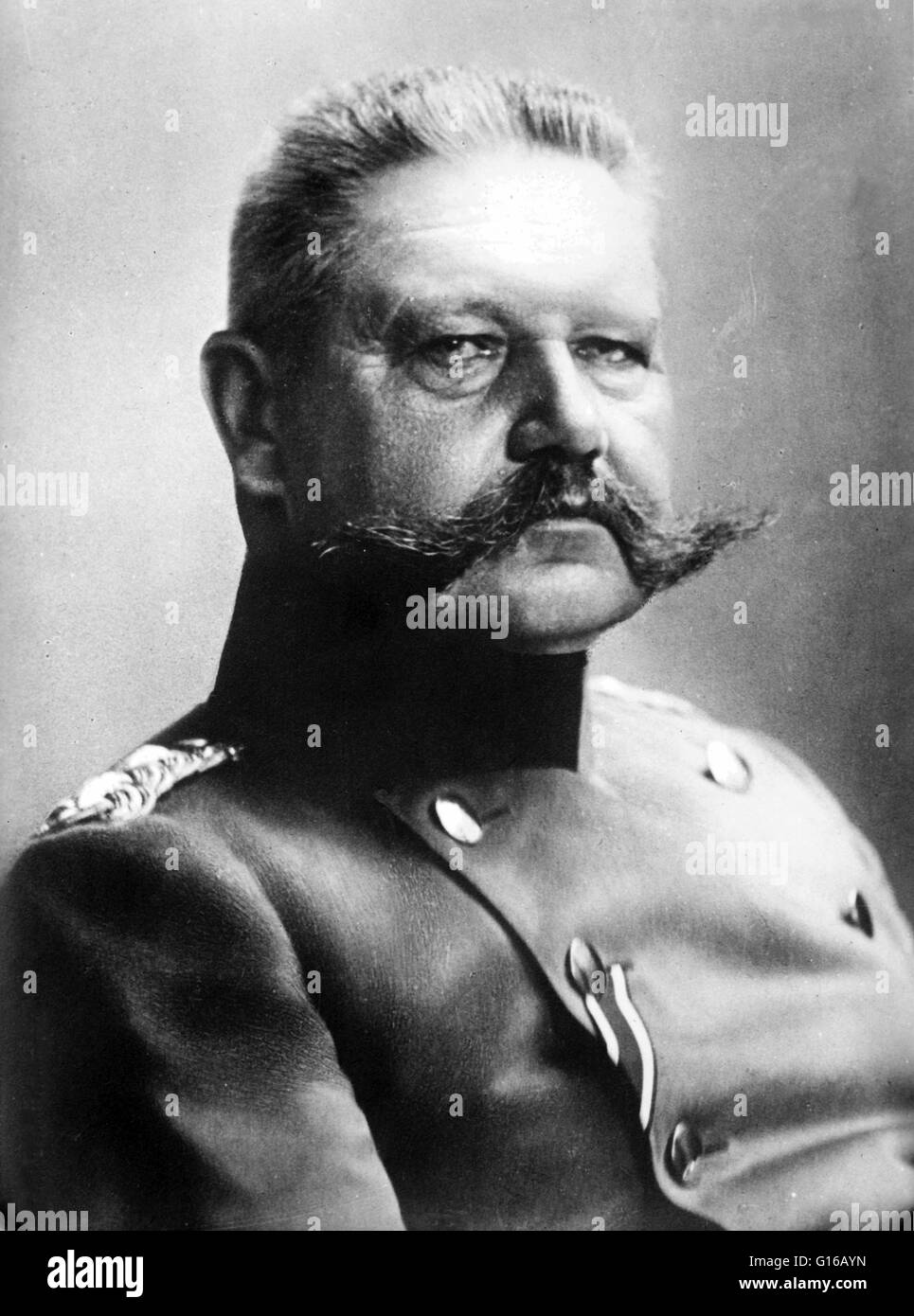Paul Ludwig Hans Anton von Beneckendorff und von Hindenburg (October 2, 1847 - August 2, 1934) was a Prussian-German field marshal, statesman, and politician, and served as the second President of Germany from 1925 to 1934. He enjoyed a long career in the

Image details
Contributor:
Science History Images / Alamy Stock PhotoImage ID:
G16AYNFile size:
41.9 MB (991.7 KB Compressed download)Releases:
Model - no | Property - noDo I need a release?Dimensions:
3300 x 4443 px | 27.9 x 37.6 cm | 11 x 14.8 inches | 300dpiPhotographer:
Photo ResearchersMore information:
This image could have imperfections as it’s either historical or reportage.
Paul Ludwig Hans Anton von Beneckendorff und von Hindenburg (October 2, 1847 - August 2, 1934) was a Prussian-German field marshal, statesman, and politician, and served as the second President of Germany from 1925 to 1934. He enjoyed a long career in the Prussian Army, retiring in 1911. He was recalled at the outbreak of World War I and first came to national attention, at the age of 66, as the victor at Tannenberg in 1914. He retired again in 1919, but returned to public life one more time in 1925 to be elected as the second President of Germany. In 1932, Hindenburg, 84 years old and in poor health, was considered the only candidate who could defeat Adolf Hitler. He was re-elected in a runoff. Although he was opposing Hitler, the deteriorating political stability of the Weimar Republic led him to dissolve the parliament twice and with increasing pressure from the rising Nazi party was forced to appoint Hitler as Chancellor in January 1933. In February, he issued the Reichstag Fire Decree which suspended various civil liberties, and in March he signed the Enabling Act, in which the parliament gave Hitler's administration legislative powers. He remained in office until his death at the age of 86 from lung cancer in 1934. Hindenburg himself was said to be a monarchist who favored a restoration of the German monarchy. It has been alleged that his will asked for Hitler to restore the monarchy. However, the truth of this story cannot be established as Oskar von Hindenburg destroyed the portions of his father's will relating to politics. The famed zeppelin Hindenburg that was destroyed by fire in 1937 was named in his honor. Von Hindenburg at desk, Bain News Service, circa 1914-15.